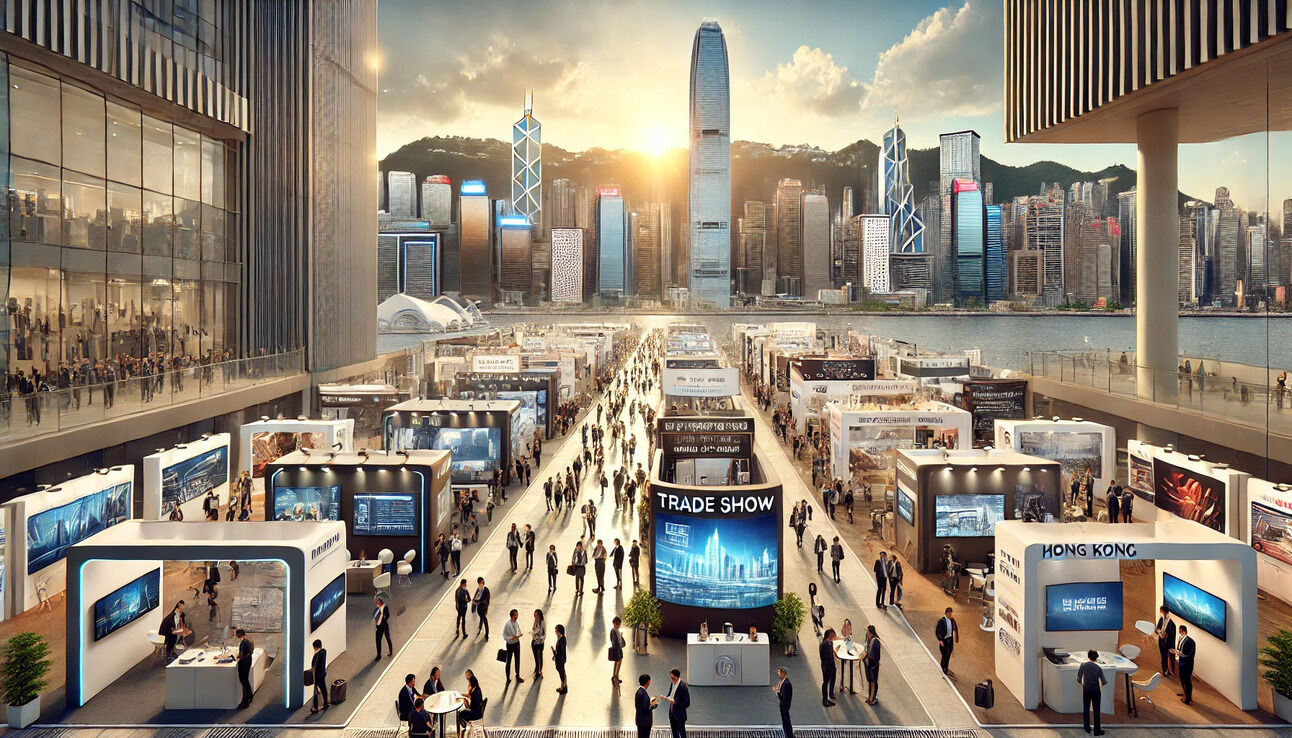Hong Kong has long stood as a global hub for commerce, culture, and innovation. Its trade show industry exemplifies this status, evolving over decades to become a vital driver of business and creativity. From its humble beginnings to cutting-edge events like The Hub, trade shows in Hong Kong have transformed into dynamic platforms that shape industries and set trends. This article explores the history, key milestones, and the pivotal role of The Hub in shaping the future of trade shows, while offering insights into emerging trends and predictions.
Early Beginnings
The origins of trade shows in Hong Kong can be traced back to modest gatherings aimed at facilitating trade between local businesses and international buyers. During the mid-20th century, these events primarily focused on commodities and raw materials, reflecting Hong Kong’s status as a manufacturing powerhouse. The initial trade fairs were small-scale and localized, catering specifically to key industries such as textiles, electronics, and toys.
As Hong Kong established itself as a global export leader, trade shows became essential for showcasing products to foreign markets. The introduction of significant infrastructure, particularly the Hong Kong Convention and Exhibition Centre (HKCEC) in 1988, marked a turning point in the industry. This venue provided a dedicated space for large-scale events, enhancing the city’s capacity to host international trade shows and solidifying its reputation as a global business hub. These early trade shows laid the groundwork for what would become an expansive and influential trade show industry.
Milestones in the Trade Show Industry
Over the decades, Hong Kong’s trade show industry has reached significant milestones that reflect the city’s adaptability and forward-thinking approach. One of the most notable transformations occurred in the late 20th century when trade shows began to specialize, with events dedicated to specific sectors such as fashion, technology, and luxury goods. This specialization attracted more targeted audiences and exhibitors, enhancing the overall quality and relevance of the events.
Furthermore, events like the Hong Kong Electronics Fair and Hong Kong Fashion Week gained international acclaim, drawing participants from around the world and elevating the city’s profile on the global stage. The early 2000s introduced digital elements such as virtual showrooms and online registration, which enhanced accessibility and efficiency, allowing a broader audience to engage with the events.
In recent years, there has been a significant push toward sustainability within the trade show industry. Organizers and exhibitors have adopted eco-friendly practices to minimize their environmental impact, reflecting a growing awareness of sustainability among consumers and businesses alike. These milestones have not only shaped the local economy but have also influenced global trade show practices, positioning Hong Kong as a leader in the industry.
The Hub’s Role in Shaping the Future
Among the diverse trade shows in Hong Kong, The Hub has emerged as a trailblazer, redefining what these events can achieve. Launched as a platform for fashion and lifestyle brands, The Hub quickly gained recognition for its innovative approach and transformative impact on the industry. One of its key contributions is spotlighting emerging designers by providing them a platform to showcase their work to a global audience.
The Hub fosters collaboration by connecting exhibitors, buyers, and industry professionals, facilitating partnerships that drive innovation and growth. Unlike traditional trade shows, The Hub integrates interactive exhibits, live demonstrations, and thought-provoking panels, creating an immersive environment that enhances attendee engagement. A success story from The Hub is designer Chi Zhang, who credits the event for expanding his reach and securing international collaborations. His experience exemplifies The Hub’s ability to empower brands and transform careers, setting a new benchmark for trade shows in Hong Kong and beyond.
Trends and Predictions
As the trade show industry continues to evolve, several emerging trends and predictions highlight the future direction of these events in Hong Kong. One prominent trend is the adoption of hybrid formats, which combine in-person and virtual elements. This approach caters to a broader audience and ensures accessibility for global participants, making it easier for businesses to engage with potential clients and partners regardless of their location.
Data-driven insights are also becoming increasingly important in the trade show landscape. Advanced analytics are being utilized to track attendee behavior, enabling exhibitors to tailor their approaches and improve return on investment (ROI). In line with this, sustainability leadership is gaining traction, with green practices such as carbon-neutral booths and the use of recyclable materials becoming standard across the industry.
Another trend is the movement toward personalized experiences. Trade shows are shifting to offer highly curated experiences, providing tailored recommendations and exclusive content for attendees. Looking ahead, predictions suggest that tech-enhanced interactions, such as augmented reality (AR) and virtual reality (VR), will revolutionize how exhibitors present their products and engage with visitors.
Moreover, Hong Kong’s trade shows are expected to strengthen their role as gateways to the Asian market, attracting even more international participation. Continued innovation, particularly from events like The Hub, will inspire other trade shows to experiment with bold and creative approaches, ensuring the industry remains dynamic and relevant. These trends position Hong Kong’s trade shows as leaders in innovation and adaptability, setting a global standard for excellence.
In conclusion, the evolution of trade shows in Hong Kong reflects the city’s resilience and commitment to progress. As the industry continues to adapt to changing market demands, it remains a vital platform for showcasing creativity, fostering collaboration, and driving economic growth. Whether through traditional formats or innovative new approaches, trade shows in Hong Kong will undoubtedly continue to play a crucial role in shaping the future of commerce and culture.
